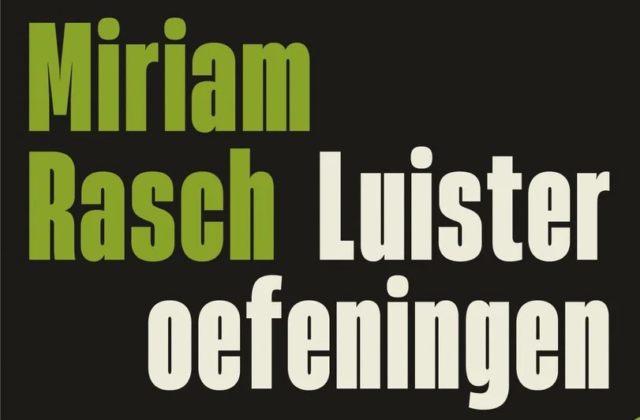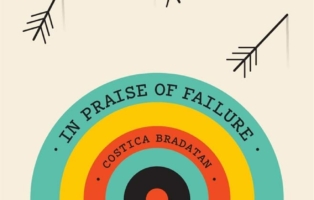
Listening as resistance
By Miriam Rasch
It is already quite some time ago that I engaged in a personal project, called The Human Cat. I would deliberately fail as a human being – I was well underway, without a regular job or boyfriend and only a humanities master to vouch for me – but I would succeed as a cat. The project was meant both as critique of ‘the system’, which I just couldn’t crack at the time, and as a way to grant myself some deserved rest and relaxation. Doing nothing as a form of protest – wouldn’t that be a win-win-situation.
First things first, I registered a website address. In my mind The Human Cat grew into a kind of Gesamtkunstwerk with a diary, pictures, videos, and eventually an artist’s book. But it came to nothing. I abandoned the whole thing quite quickly, without so much as a purr. I didn’t have the time to fail – there was rent to pay and insurances, not to mention the cat food for the perfectly accomplished furry friend that already lived with me. In a sense, the project was a perfect flop, since the doing of nothing indeed came to nothing.
Some years later, however, I ended up writing about my failed attempt at becoming cat in an essay, which was subsequently published in a book. That completed the circle of failing at failure. I set out to do nothing, didn’t manage to do even that, but then did put it in a book. Look, now it was something. A venerable critique.
It is a paradox that haunts me ever since: How can you do nothing, and still be able talk about it? How does one step outside of the productivity cycle, and then report on that? How to escape the contradiction of failing and subsequently succeeding in telling about it?
Since the-human-cat-dot-weblog-dot-com, the world hasn’t slowed down a bit. Doing nothing, failing to take part, refusing to be co-opted, is a form of protest that feels even more urgent now – even for the somewhat successful professional I turned into. We’re constantly pushed to speak up, share our opinions and accomplishments, our looks, our food, our cat (online, I mean). Opting out mostly harms yourself – invisibility is a high price to pay nowadays. Who will read your latest article if it doesn’t circulate online? If your friends don’t see you regularly in their feeds, how will they remember that they care for you?
The constant drive towards productivity and self-expression only deepens the need for seclusion. At least for me. I’ve always considered myself more likely to end up roving the desert alone, searching for revelation, than joining a revolution with a bunch of comrades. I can genuinely long for a life like Suster Bertken’s, a nun from 15th century Utrecht who had a cell built for herself in a church and spent 57 years there, enclosed in stone. At the same time, as a writer or philosopher it feels a bit deceptive to say you are or want to be a loser. Don’t I have something to say? There’s a weird internal drive to contribute, I can’t help it. (I just spent five months locked away in a little white room, writing a book about not wanting to engage online – just saying.) Even Suster Bertken was a published writer and apparently had a lot of visitors come by her cell, seeking advice or just a listening ear.
That brings me to the question of this evening. What are alternative ways of engaging – let alone resisting – without, well, engaging too much? Churning out critiques of productivity as if one was a productivity guru seems contradictory. And as we know, critical alternatives are usually made to fit in the system very fast. Mindfulness is co-opted by capitalism, yoga is offered by your health insurance, space to play is part of Silicon Valley architecture, and the praise of doing nothing is readily enclosed by the neoliberal regime we live and work in. Then it becomes a project in its own right, with goals and results, and God forbid, a project leader. The tough question is: is it even possible to do nothing outside of this system? And then, to make it known to the world? Or is that not necessary for it to count as engagement or resistance?
Two short remarks. First, I’d like to turn over the word project. Doing a project is inherently productive. You project something into the future, and in our times, that goes with targets, milestones, and plannings. As Sartre pointed out, human life itself is a project, or it should be, where we thrust ourselves forward, becoming who we want to be, in all our freedom. I hear you, Sartre, but it also makes me tired just thinking about it.
As a small step forward, I propose to use the word ‘practice’ over project. A practice has an artistic ring to it, but most importantly: it has no end. If you fail, even if you fail at failing, you wake up the next day and start practicing again, for better or worse. Instead of drawing up another self-centered project with a website attached to it (to my defense, the human cat was more or less pre-Facebook-age), practices of withdrawal can be stumbling, stuttering forms of ‘resistance’ – though this word must, by nature of withdrawal itself, always be understood hesitantly. A practice is imperfect and dirty, but also something you can pick up at any time, like learning a language or playing the piano. (Or yoga or mindfulness.)
Second. For the past couple of years, I have been working on the theme of listening. I believe listening to be a practice that combines the needs for seclusion and for contributing. At first glance, listening seems passive, a retreat into silence, maybe even the submission to someone else, as in ‘now you listen to me!’ But I’ve come to understand it as a ‘third’ – a thing that breaks up the binary of being silent and speaking up, or of activity and passivity. Of retreating into a stone cell and joining the all-too-social project of revolution. Something, with Simone Weil, that is a ‘passive activity’. Once you start practicing your ears, you’ll find that it is a special type of doing, despite the need to stay silent. (I suspect that staying silent for many people is already something they need to actively practice.)
To be sure, listening is co-opted as well, by politicians who again and again promise to listen to ‘the people’ and by CEOs who claim to have changed their business around simply by listening to their employees (because it makes them feel heard and that will make them work harder). You might call this ‘performative listening’, or listening as a project, with its own targets, goals, and milestones.
But that’s not the listening I’m after. What happens when you listen, passively-actively, is that a relationship unfolds to what is listened to, be it another human being, a bird, the ocean, or yourself. This relationship is not static, nor neutral. Pauline Oliveros, the composer who developed the practice of deep listening, calls it the listening effect: listening, even if it is done in silence and without a so much as a gesture, changes the world. And the world, in turn, changes you back. Listening, you are on the receiving end and at the same time an actor. Being on the receiving end doesn’t usually count as desirable, but could it be that it is there that doing nothing turns into protest? I’m curious to hear what you have to say.
This essay is based on the NIAS talk held at Spui25 on 22 January 2024 and was published in the Dutch Review of Books.
-
 Fellow
FellowMiriam Rasch
-

-
 Fellow
FellowCostică Brădăţan
-
